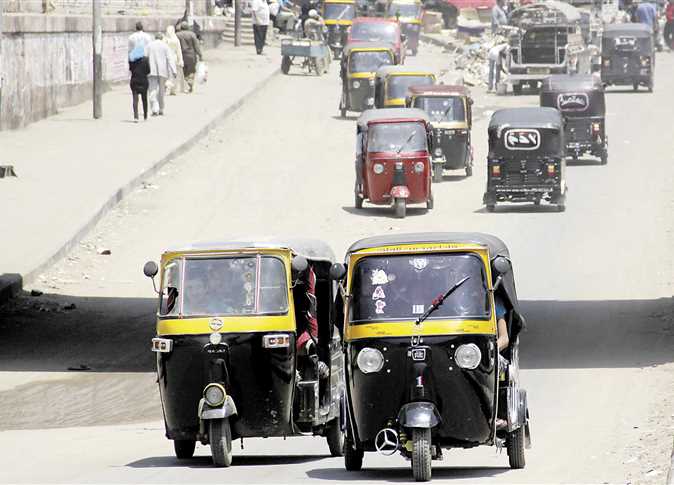“So I play a little game in my head. It’s like walking through a videogame scene, where every man is a potential predator, and I keep my radar finely tuned, my walk fast and dontmesswithme, my eyes scanning every corner for attackers. Over the years, I’ve acquired a Robocop face that occasionally scares the living shit out of small children and animals, and my middle finger is my videogame weapon that I choose to shoot when the moment comes.”
The above excerpt is not from a screenplay or novel, but from Diary of A DeskGirl in Cairo, a blog by a young Egyptian woman named Suzy.
Bloggers and tweeters in Egypt and across the Middle East joined together on Monday to raise awareness about the issue of sexual harassment and gender-based violence. The initiative resulted in more than 12,000 tweets using the hashtag #EndSH and more than 150 blog posts.
While Suzy’s post was darkly humorous, and one of the most-shared posts of the day, others elaborated on specific experiences, tried to analyze the causes of the harassment or lamented women’s inability to do everyday things like walking outside without being hassled.
“I can no longer just go walking when it suits my whim, I had to pick the time, place, outfit (the most loose and darkest one I could manage), and all through the way my face has to portray the look of someone who was electrocuted before they left their home (otherwise people would be encouraged to lay on the remarks),” wrote Sina on a blog called Natural Conspiracy.
Eighty-three percent of Egyptian women reported being sexually harassed in a 2008 study by the Egyptian Center for Women’s Rights, with 46.1 percent reporting that such harassment happened on a daily basis. Many women on Twitter shared their own experiences with sexual harassment.
“First time I was sexually harassed I was NINE years old on a bus! That’s how bad it is in the Arab world,” tweeted @dima_khatib.
“Kids from the Islamic school next to Gamaa ElFath would run from behind, slap my butt, and run away. Who taught them this?” tweeted @toriaar.
On Tuesday night, a handful of people who had participated in the blogging and Tweeting event gathered at the headquarters of Nazra for Feminist Studies, a women's rights organization based in downtown Cairo. Their aim was to discuss Monday's event and plan further action.
“What’s important about yesterday is that it’s the first time that women’s issues have been brought to the forefront since the women’s demonstration on 8 March was attacked,” said organizer Leil-Zahra Mortada, who proposed the day of online discussion after becoming frustrated by the stories his friends would tell about being harassed.
Mortada considers the day of online activism a success, based on the amount of discussion that it generated and also on the number of people participating from countries other than Egypt. The initiative was extensively covered by both local and international media, which generated further discussion of the issues.
However, there was some criticism in the blogosphere and on Twitter that a day of online activism is not an effective tool to combat sexual harassment because it doesn’t reach those who need it most. Mortada countered that the media coverage spread the message beyond the internet.
Engy Ghozlan of HarassMap, which sponsored the initiative along with Nazra, said that the day was not a goal in and of itself, but one tool among many to tackle the issue.
“It’s a beginning; you highlight the problem,” she said, noting that, “Even the army talks to us though Facebook now.”
Suzy also pointed out that just because someone uses Facebook or Twitter doesn’t necessarily mean that they are enlightened about the issue of sexual harassment.
“The reaction and comments I received from many educated men on Twitter and on my blog showed me that the ignorance and stereotyped perspective on women being harassed exists among men on twitter too,” she said, “The comments… proved to me that this is a social endemic that is not exclusive to a certain social class or education; it's widespread and integrated within our social consciousness.”
Tarek Mostafa, a project manager at Nazra, also considers the day of online activism to have been a success. “People have been waiting for a chance to speak together about this taboo,” he said.
Mostafa also mentioned that he wished that other types of gender-based violence, such as marital rape and harassment in the workplace, not just the street, had been discussed.
Nazra plans to host more real-life gatherings at its downtown office in the future to discuss such topics. It is also considering ideas such as self-defense classes and a graffiti campaign against harassment.
“Living in Egypt is not easy. It’s a struggle,” said Mostafa, “but after 30 years of political and cultural destruction, what do you expect?”
Over the coming weeks, Al-Masry Al-Youm each Wednesday will feature pieces that dissect the reasons behind sexual harassment, the coping mechanisms for women (and men) in the streets of Cairo, and the systems that have been set up to tackle this festering issue. Comments and input are appreciated – send us your stories of sexual harassment and information on any organizations or initiatives that combat sexual harassment in Egypt.
Contact the Life & Style section at [email protected] for your input into The Sexual Harassment File.




